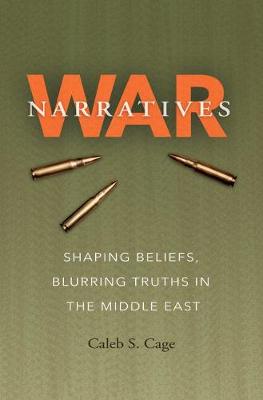Williams-Ford Texas A&M University Military History
1 total work
Since the end of the draft in the United States, the nation's wars have been fought by all-volunteer forces, creating an enormous divide between the civilian public and its military. Recent wars have taken place during the information age, allowing cable news and the ""new media"" of the internet to change, sometimes on a daily or even hourly basis, the way wars are understood. As a result, a multitude of competing and often flawed narratives have emerged that, ultimately, merely explain events in terms of self-serving political and cultural perspectives.
Author Caleb S. Cage, a veteran of the war in Iraq, brings a unique perspective to the understanding of how we talk about war. Why does the American public believe that those who served are somehow both heroes and victims, while the typical service member rarely embraces either identity? How does what happens on the front line get communicated to those back home, and what happens to that information as it travels? Is it possible that works of fiction are telling the most ""real"" versions of what is happening ""over there""?
War Narratives is a tightly packed and provocative book containing a series of connected essays on the many competing narratives-both fiction and nonfiction-that are used to explain recent conflicts in Iraq and Afghanistan, how those narratives are perceived through preexisting social, political, and literary lenses, and how they often fall short. As Cage points out, narratives are not merely the stories shared or even how they are told; these expressions reflect choices.
Author Caleb S. Cage, a veteran of the war in Iraq, brings a unique perspective to the understanding of how we talk about war. Why does the American public believe that those who served are somehow both heroes and victims, while the typical service member rarely embraces either identity? How does what happens on the front line get communicated to those back home, and what happens to that information as it travels? Is it possible that works of fiction are telling the most ""real"" versions of what is happening ""over there""?
War Narratives is a tightly packed and provocative book containing a series of connected essays on the many competing narratives-both fiction and nonfiction-that are used to explain recent conflicts in Iraq and Afghanistan, how those narratives are perceived through preexisting social, political, and literary lenses, and how they often fall short. As Cage points out, narratives are not merely the stories shared or even how they are told; these expressions reflect choices.
